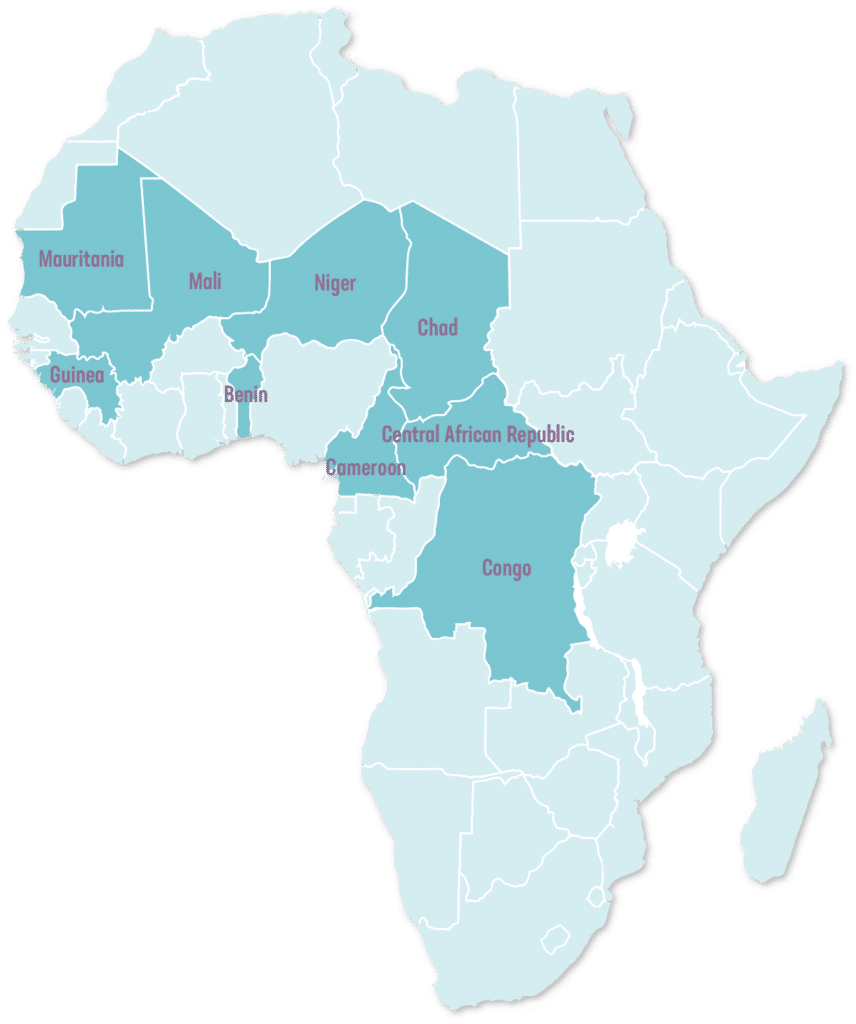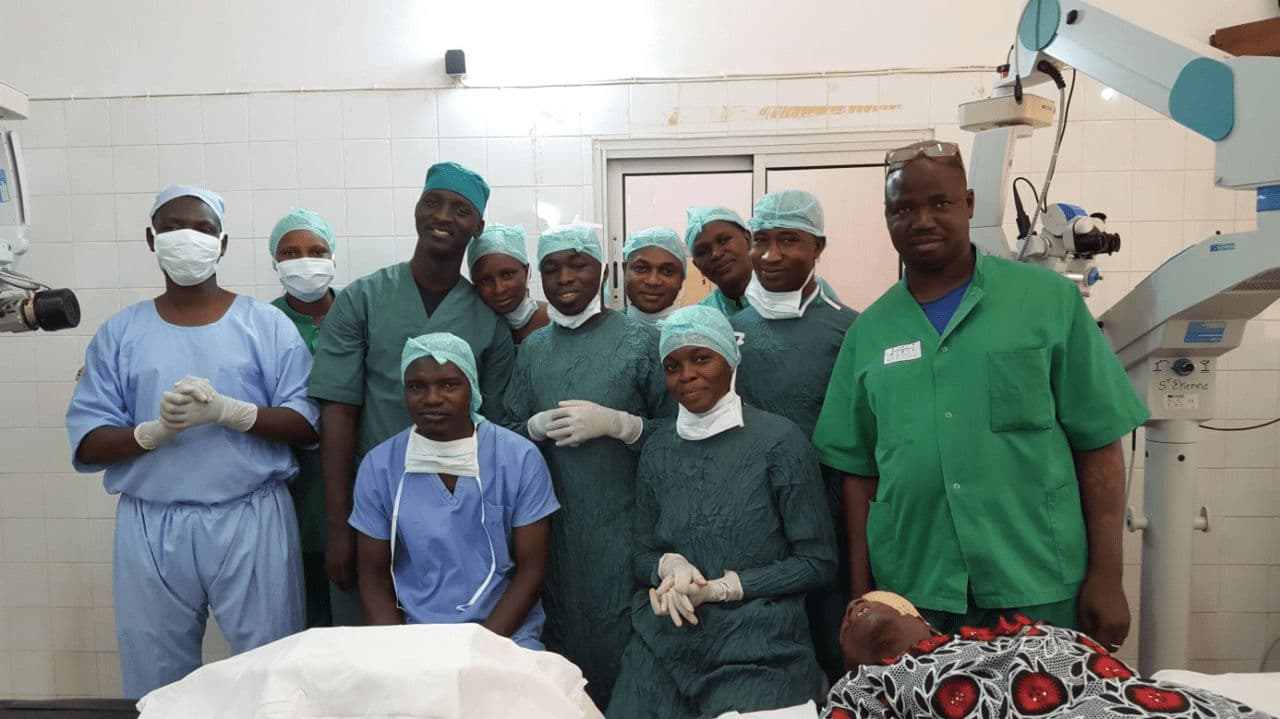Established as a nonprofit in 1978, OPC was founded by a group of health and development experts with a passion for making a difference in the world.
OPC was founded by Christian Monnier, a retired banker, Professor André Dubois-Poulsen and Prof. Louis Guillaumat, who both were head of the XV-XX Hospital in Paris and President of the French Society of Ophthalmology at different periods, and Pierre Aubé, a former financial advisor. Prof. Dubois-Poulsen served as the first chair of the Board of Directors. Later, the leadership of Prof. Jean Langlois allowed for the launch of OPC’s first projects in Africa, notably the “Yeleen” program in Mali. He also was instrumental in OPC joining the International Agency for the Prevention of Blindness (IAPB) as a member. In 1997, Prof. Yves Pouliquen, ophthalmologist and elected member of the French Academy of Medicine in 1992 and the French Academy in 2001, initiated the national screening for diabetic retinopathy in France and extended OPC’s reach in West and Central Africa, bringing the number of partner countries to ten.
Over the years, OPC created primary eye care networks and supported the Institute of Tropical Ophthalmology of Africa (IOTA). Priorities included activities that remain central to our actions today, such as fighting onchocerciasis (river blindness) and trachoma in West Africa, developing sustainable technical support for the treatment of cataracts, and training health personnel in ophthalmology.
OPC implemented eye health care programs in Vietnam, France, Haiti, Moldova and French-speaking Africa and covered topic such as diabetic retinopathy prevention, low-vision care networks, and providing eye health centers with high-performance diagnostic equipment to fight age-related macular degeneration.
Since 1978, OPC became a trusted development partner of the Ministries of Health of several countries in French-speaking Africa and entered an official relationship with WHO since 2000.
In 2012, our priorities shifted to focus on Francophone Africa, understanding the greater impact we could have in these countries that are often overlooked by international development actors as funding and resources are more commonly allocated to English-speaking African countries. In recent years, this also includes initiatives in both French-speaking and Portuguese-speaking African countries, through a new program that supports school eye health.
Expertise
For over 40 years, OPC has been the expert nonprofit partner working in Francophone Africa. Thanks to our team’s expertise, understanding and respect for local contexts and longstanding relationships with stakeholders at the national, regional and local level, OPC is the trusted partner to develop and implement inclusive comprehensive eye health care programs in more than 10 French-speaking African countries.
Jump to section
Why Francophone Africa?
Francophone Africa is frequently overlooked by international development stakeholders when it comes to fighting blindness, restoring sight and providing access to quality eye health care. In fact, French-speaking African countries receive far less foreign aid funding compared to English-speaking African countries. For example, Benin receives 5 times less support for eye health than Kenya and 15 times less than Namibia.
OPC works with governments, civil society organizations and communities to fight blindness, restore vision, encourage local ownership of eye health care systems and ensure the human right to sight.

